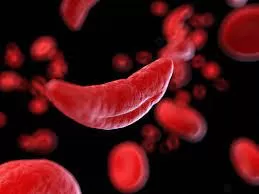In a landmark study, scientists from the University of York and Hull York Medical School have developed a new, safe, and effective method to infect volunteers with the parasite causing leishmaniasis, significantly advancing the quest for a vaccine. This groundbreaking research, published in Nature Medicine, lays the foundation for the development of vaccines and new preventative measures against this neglected tropical disease.
Leishmaniasis, which affects over a million people annually, is caused by the microscopic Leishmania parasites transmitted through the bite of infected sand flies. The disease typically results in slow-healing ulcers at the infection site, leaving scars that profoundly impact the quality of life, especially for women and children.
Controlled human infection studies, where volunteers are exposed to small amounts of disease-causing microbes, are essential for proving the safety and efficacy of new vaccines. However, such studies have been limited in the fight against neglected tropical diseases due to logistical and financial challenges.
The breakthrough study involved 14 volunteers from York, who were exposed to sand flies infected with a parasite species causing one of the mildest forms of leishmaniasis. The researchers monitored the infection’s progression and terminated it by biopsying the skin lesion, allowing them to study the immune responses at the infection site. This approach uses natural transmission by sand flies and advanced technologies to track the infection and the body’s immune response in real-time.
Lead investigator Professor Paul Kaye from Hull York Medical School said, “This is a landmark study that now provides a new approach to test vaccines and preventative measures for leishmaniasis in a rapid and cost-effective way. It also allows us to learn more about how our immune system fights the infection. Thanks to the generosity of the volunteers that took part in our study, we are now well-positioned to bring new hope to those affected by this disease.”
Professor Alison Layton, Clinical Lead for the study from the Medical School’s Centre for Skin Research, emphasized the global impact of the research: “Research on skin diseases that affect people in the UK and developing countries is a priority at the Medical School. This study, which demonstrates that this infection model is safe and well-tolerated by participants, exemplifies our global approach to skin health and has the potential to impact the lives of many millions worldwide.”
This innovative model is expected to accelerate efforts to test new vaccines and understand how immunity to infection arises. The researchers now aim to use their model to design clinical trials for a vaccine developed at Hull York Medical School and other candidate vaccines in the future. Controlled human infection models have previously supported vaccine development for diseases like cholera, malaria, influenza, dengue fever, and most recently, COVID-19.
The study was a collaborative effort involving the Hull York Medical School, York and Scarborough Teaching Hospitals NHS Trust, the Department of Parasitology at Charles University in Prague, the Center for Geographic Medicine and Tropical Diseases at Chaim Sheba Medical Center, Tel Aviv University, and the Kuvin Centre for Study of Tropical & Infectious Diseases, Hebrew University-Hadassah Medical School, Jerusalem.
Funding for the research came from a Developmental Pathways Funding Scheme award from the UK Medical Research Council (MRC) and the UK Department for International Development (DFID) under the MRC/DFID Concordat agreement, and is also part of the EDCTP2 program supported by the European Union.











